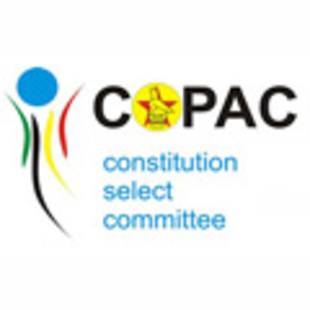
Kindly consider my opinion and views on the recently published Copac summary of the draft constitution featured in The Standard (March 3-9 2013).
Sunday Opinion by John Demus
I have keen interest in the ensuing developments pertaining to the draft. I would appreciate opposing and or supporting arguments in an effort to empower the electorate, before we elect to participate or not in the impending referendum and election respectively. Official Languages
What constitutes official recognition of a major spoken language? There are 14 languages prescribed as major and official in the draft, but to be honest, I knew only three major languages before I read the draft constitution. What’s the difference between a dialect and a language? A major and a minor language?
What’s the prerequisite to qualify a language as Zimbabwean? I would appreciate insights from linguists and historian Aeneas Chigwedere.
The Presidency Why is it necessary for the Executive to nominate two running mates? What’s the disadvantage of nominating one? Under Chapter 5, The Executive Part 3, it says: “The President guided by considerations of regional and gender balance appoints ministers and deputy ministers from Members of the Legislature.” I would have thought it beneficial for a progressive democracy like ours to function under the premise of proportional representation when constituting a cabinet as reflected by the Legislature’s composition.
To anoint or not to appoint What happens in the instance where the Executive chooses to arbitrarily elect and appoint cabinet members of one party over another? Is the Executive obliged in any way to observe, implement and allocate posts with accord to fair and equitable representation? Is it within its power for the Legislature to recommend and/or disapprove the appointment and choice of any public officer who holds office at the pleasure of the Executive and /or fire ministers appointed from outside the Legislature? Does the constitution stipulate the size of the cabinet?
Vetoing Under Chapter 18: General and Supplementary Provisions, Part 3, Interpretation, the Executive has two elective rights where the authority makes an appointment “acting on the advice of ”, which means he must follow the advice and/or alternatively “after the consultation with”, which means the Executive has to consult but does not have to follow the recommendations made thereof. Where the President elects to enforce the latter, does the Legislature have the power to veto presidential appointments where it deems such selections as contrary to the proper execution of duty or the vested interests of Zimbabwe? A good example is that of the arbitrary appointment of non-elected provincial governors.
- Chamisa under fire over US$120K donation
- Mavhunga puts DeMbare into Chibuku quarterfinals
- Pension funds bet on Cabora Bassa oilfields
- Councils defy govt fire tender directive
Keep Reading
The Legislature Chapter 6, Part 2 declares “All agencies of government are accountable to The Legislature.” Which agencies in particular? Does this include the Office of the Attorney General, the Security Services? Is it within the Legislature’s ambit to institute an inquiry into the operations of the intelligence service established under law or by order of the executive or cabinet?
The Senate Only 70% of Senate seats are by virtue of direct universal ballot. The outstanding 18 seats are reserved for traditional chiefs with the remaining two allocated to the disabled. Each provincial assembly of chiefs nominates two representatives complemented by the National Council Chiefs President and his deputy. Despite constituting a caucus in the National Council where they are fairly represented, chiefs earn an additional berth in the Senate thereby reducing direct universal ballot and equitable representation by 22,5%
The Parliament Is it feasible at present for the Zimbabwean economy to sustain a financial threshold ratio of 29:1 in terms of legislative representation? The total sum of legislative representatives is 290 for a total of 10 provinces, translating to 29 officials representing each province. This figure does not include an additional 60 female members, six from each province (for the first two parliaments after this constitution comes into force).
To halt or not to vote Despite keen interest in the ensuing constitutional draft, I have not come across an analysis that postulates the possibility of the Government of National Unity entertaining surgical modifications to the current draft, if and when the electorate register an overall “No” vote.











